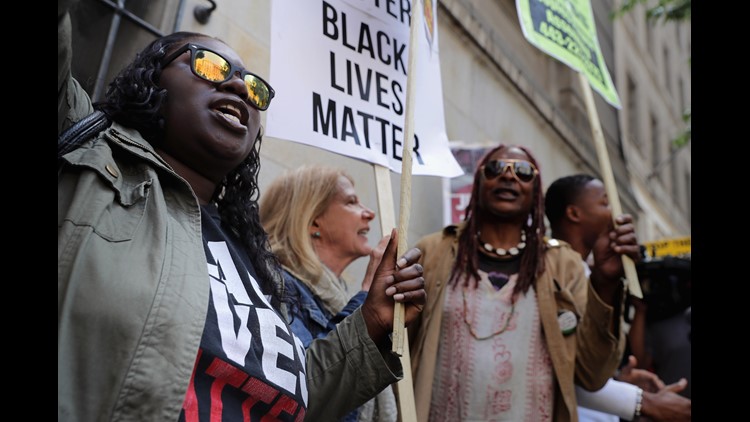A judge will determine the fate of Caesar Goodson on Thursday, the Baltimore officer who faces the most serious charges stemming from Freddie Gray’s death.
Gray, who was 25, suffered a devastating spinal injury and died in April 2015, about a week after he was arrested and placed into a prisoner van that Goodson was driving.
His death spurred protests that eventually turned violent, setting fire to Baltimore and thrusting the city into the national debate on police brutality.
Goodson faces the most serious charges of the six officers arrested in the case.
Judge Barry Williams will issue his verdict around 10 a.m. ET on Thursday.
The ‘rough ride’
Six officers were charged in Gray’s death, but Goodson, who opted for a bench trial, faces the most serious, including second-degree depraved heart murder.
Prosecutors allege that Gray was arrested on a weapons charge, Goodson took him on a “rough ride” in a prisoner van — a punitive measure police used against unruly subjects.
They say Goodson drove so radically that he blew through a stop sign and veered into another lane of traffic because of the speed he was traveling, which prosecutors said would have tossed Gray around in the van. This is the point in the ride that prosecutors think Gray sustained his fatal spinal injury.
The prosecution argues that Goodson failed on two accounts: failing to put a seat belt on Gray when he was in the back of the van and neglecting to provide Gray with proper medical assistance after Gray indicated that he wanted to go to the hospital.
Goodson is also charged with second-degree assault, misconduct in office, involuntary manslaughter, manslaughter by vehicles (gross negligence), manslaughter by vehicle (criminal negligence) and reckless endangerment.
Goodson’s defense
Defense attorneys for Goodson argued that there is no evidence of that rough ride and that Gray’s injuries were caused in part by his own agitation and thrashing around in the van.
They said Gray was combative and uncooperative and that Goodson used his judgment to not put a seat belt on Gray because he felt it wasn’t safe.
“We certainly don’t want to speak poorly about the deceased, but Mr. Gray created the high-degree of risk,” defense attorney Matthew Fraling said during the bench trial.
The defense added that, although he asked to go to the hospital, Gray never showed symptoms that would have called for immediate medical attention, such as bleeding, bruising or broken limbs.
Over the seven-day testimony, the state called 21 witnesses; the defense called on nine. Goodson didn’t testify.
Judge Williams also presided over the bench trial of Baltimore officer Edward Nero, the second to stand trial in Gray’s death. He was acquitted of all charges.



